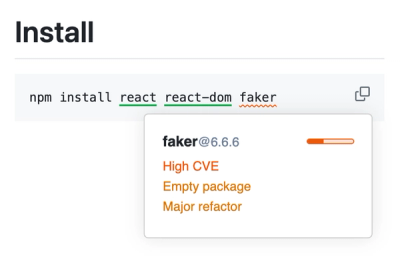Standard Engine



Overview
Wrap your own eslint rules in a easy-to-use command line tool and/or a JS module.
Install
npm install standard-engine
Who is using standard-engine?
Here is a list of packages using standard-engine. Dive into them for ideas!
Did you make your own? Create a pull request and we will add it to the README!
Usage
Create the files below and fill in your own values for options.js.
index.js
var Linter = require('standard-engine').linter
var opts = require('./options.js')
module.exports = new Linter(opts)
cli.js
#!/usr/bin/env node
var opts = require('../options.js')
require('standard-engine').cli(opts)
options.js
var eslint = require('eslint')
var path = require('path')
var pkg = require('./package.json')
module.exports = {
version: pkg.version,
homepage: pkg.homepage,
bugs: pkg.bugs.url,
eslint: eslint,
cmd: 'pocketlint',
tagline: 'Live by your own standards!',
eslintConfig: {
configFile: path.join(__dirname, 'eslintrc.json')
},
cwd: '',
formatter: require('pocketlint-format'),
formatterName: 'pocketlint-format'
}
eslintrc.json
Put all your .eslintrc rules in this file. A good practice is to create an ESLint Shareable Config and extend it, but its not required:
{
"extends": ["pocketlint"]
}
Take a look at eslint-config-standard as an example, or if you want to extend/mutate standard, see eslint-config-semistandard.
Engine Features
Ignoring Files
The paths node_modules/**, *.min.js, bundle.js, coverage/**, hidden files/folders
(beginning with .), and all patterns in a project's root .gitignore file are
automatically ignored.
Sometimes you need to ignore additional folders or specific minfied files. To do that, add
a ignore property to package.json:
"pocketlint": {
"ignore": [
"**/out/",
"/lib/select2/",
"/lib/ckeditor/",
"tmp.js"
]
}
Hiding Warnings
Since standard-engine uses eslint under-the-hood, you can
hide warnings as you normally would if you used eslint directly.
To get verbose output (so you can find the particular rule name to ignore), run:
$ pocketlint --verbose
Error: Live by your own standards!
routes/error.js:20:36: 'file' was used before it was defined. (no-use-before-define)
Disable all rules on a specific line:
file = 'I know what I am doing'
Or, disable only the "no-use-before-define" rule:
file = 'I know what I am doing'
Or, disable the "no-use-before-define" rule for multiple lines:
Defining Globals in a project's package.json
standard-engine will also look in a project's package.json and respect any global variables defined like so:
{
"pocketlint": {
"global": [ "myVar1", "myVar2" ]
}
}
Custom JS parsers for bleeding-edge ES6 or ES7 support?
standard-engine supports custom JS parsers. To use a custom parser, install it from npm
(example: npm install babel-eslint) and add this to your package.json:
{
"pocketlint": {
"parser": "babel-eslint"
}
}
If you're using your custom linter globally (you installed it with -g), then you also need to
install babel-eslint globally with npm install babel-eslint -g.
API Usage
standardEngine.lintText(text, [opts], callback)
Lint the provided source text to enforce your defined style. An opts object may
be provided:
{
globals: [],
parser: ''
}
The callback will be called with an Error and results object:
{
results: [
{
filePath: '',
messages: [
{ ruleId: '', message: '', line: 0, column: 0 }
],
errorCount: 0,
warningCount: 0
}
],
errorCount: 0,
warningCount: 0
}
standardEngine.lintFiles(files, [opts], callback)
Lint the provided files globs. An opts object may be provided:
{
globals: [],
parser: '',
ignore: [],
cwd: ''
}
The callback will be called with an Error and results object (same as above).






